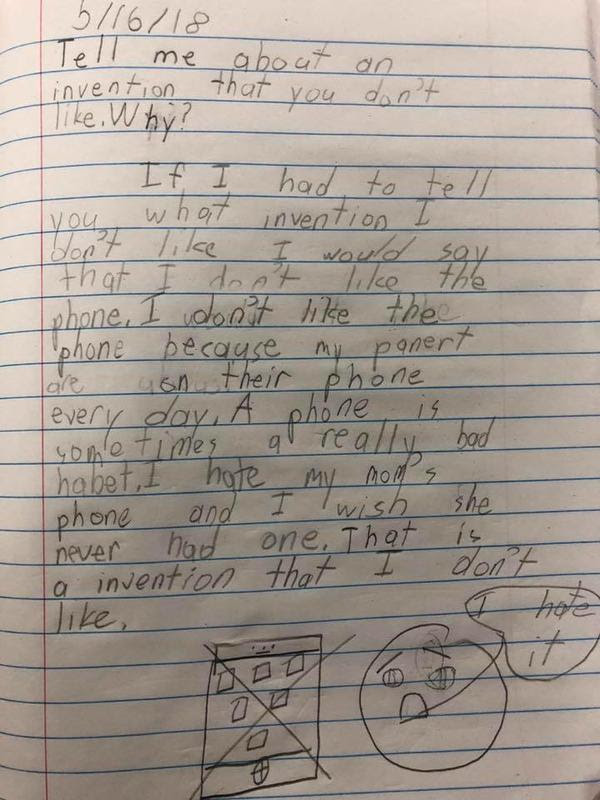You may have seen a recent viral story picked up by the BBC about a class of second grade students who were asked, “Which invention do you wish had never been created?” – several said the mobile phone, as it distracted their parents from playing with them.
r
r
You could ask the same question of your class and then explore the reasons behind their choices. Or use the attached stimulus, in which a space traveller is distressed to find their personal communicator being held at security. Would a planet that didn’t have mobile phones be a better place to live?
r
An enquiry such as this, where different preferences are expressed, could just be an interesting ponder, but for it to become more philosophical, you could get them to boil down some of the reasons given for and against the use of mobile phones to single words or phrases, such as family, friends, truth, relaxation, focus, parental attention and so on. Then capture these on individual whiteboards and have them group or rank them according to what they feel is essential for human happiness. Other deep questions on offer include:
r
Does technology change human nature?
Is there a “natural” way for humans to live?
Can we choose to ignore technology?
When does something we choose to do make us unhappy?
r
Arkady Babchenko
r
On an entirely different subject, the news story this week of the faked death of Ukrainian Arkady Babchenko provides a compelling way in to discussions of fake news and when, if ever, it is acceptable to lie. There are multiple sources reporting the story, and comparing them with one another is an interesting exercise.
r
Best wishes,
r
Jason
r
PS to speakers of languages other than English – This weekend, I was at a super network meeting of SOPHIA, The European Foundation for the Advancement of Doing Philosophy with Children. Several delegates expressed an interest in translating the minibooks and other resources Tom and I have written into their respective languages. Past translations into Czech and Polish have been not-for-profit collaborations with charities, and I’m very open to supporting P4C in other countries through similar ventures – although getting paid is nice too! There are also sometimes isolated P4Cers who don’t know of one another’s existence, but who have separately subscribed to this bulletin, so if you contact us I may be able to help you find one another.
